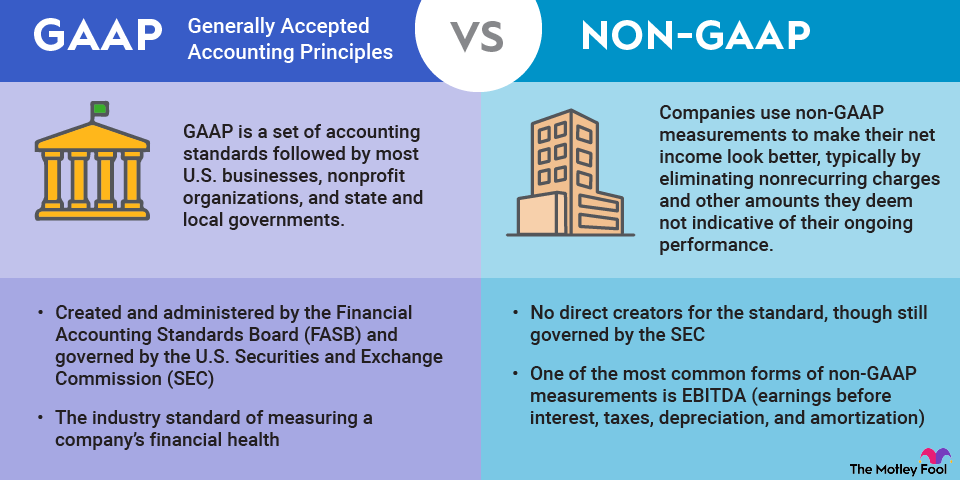Of course, many non-GAAP (also called pro forma) reports of income aren't this easy. Companies will make all sorts of changes to net income to look better.
They'll add back depreciation because it is non-cash. They'll add back restructuring charges and say they're a one-time thing. Insurance companies will add back catastrophic losses if they think the losses aren't likely to recur. Some companies will even adjust the reported numbers of a recently acquired business to subtract out expenses it believes will be reduced with "synergy."
As an investor, all of this makes it hard to trust non-GAAP numbers, and there's a long history of companies using non-GAAP to mislead investors. As long as the company reports GAAP financials as well, it can say anything it wants (as long as it isn't untrue, of course) with non-GAAP numbers.
For example, one-time costs suddenly become recurring costs. Synergies that were expected don't happen. And non-cash expenses exist in GAAP for a reason.




















